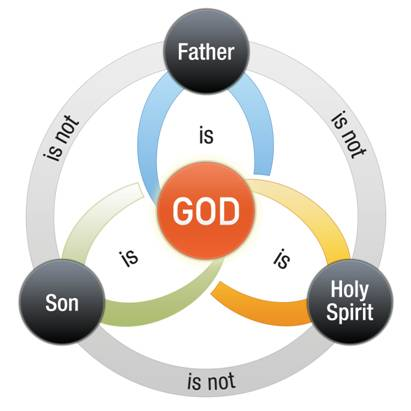In Peter Kreeft’s book Socratic Logic, I read the tale of a man who wanted to tell his friend, a farmer, something important. However, the man approached the fence surrounding the farmer’s property and noticed a large dog barking at him from the other side of the fence. The farmer was busy putting out some hay. The man said, “Sir, I have something I need to tell you. Is it okay for me to come over your fence?” The farmer said, “Sure, come on over!” The man said, “Sir, does your dog bite?” The farmer said, “No, he is a good dog. He won’t bite.” The man began to climb over the fence and the dog barked even louder. The man said again, “Sir, are you absolutely sure your dog won’t bite?” The farmer said, “Yeah, come on over. He won’t bite you!” So the man leaped over the fence. However, the dog bit him on the leg and sent him back over the fence. The man said, “Sir, I thought you said your dog wouldn’t bite!” The farmer looked around and said, “Well, that’s not my dog.” Many times a lack of communication can lead to all sorts of problem. Throughout church history, people have mistaken the roles of the Triune God. These misunderstandings have led to various heresies. Today, we will look at the functions of the Triune God. It is my hope that this message will help everyone understand the unity that Father, Son, and Holy Spirit have together. The unity of the church is stressed as we should be united together as God is united. Also, we are invited into this divine, eternal relationship through the New Covenant. God is one in three persons.
- The function of the FATHER as ARCHITECT (3:17).
In the baptism of Jesus, we see the Father’s divine existence as he speaks from the heavens. The voice said to John, “This is my beloved Son, with whom I am well pleased” (3:17).[i] Barker and Kohlenberger note that “The voice from heaven was God’s own voice; it testified that God himself had broken silence and was again revealing himself to the human race—a clear sign of the dawning of the Messianic Age.”[ii] Note, God had revealed his plan. Thus, God is the architect of the entire salvation project.
It is obvious that the Father is understood to be divine. The Father is known by his personal name Yahweh throughout the Old Testament. As we have noted previously, Yahweh means “I am” or the “self-existent One.” As he pertains to the Triune Godhead, he holds the function of the great planner or even the mastermind, if you will. Wayne Grudem writes, “So we may say that the role of the Father in creation and redemption has been to plan and direct and send the Son and Holy Spirit.”[iii] Norman Geisler writes, “By His very title of ‘Father’ and His label of ‘the first person of the Trinity,’ it is manifest that His function is superior to that of the Son and the Holy Spirit. The Father, for example, is presented as the Source, Sender, and Planner of salvation.”[iv] If it were not for the Father, then no plan of salvation would be offered.
2. The function of the SON as ACCOMPLISHER (3:16a).
At the baptism of Jesus, we see that Christ was obedient even in an act that was not mandatory. Jesus had committed no sin for which he had to be absolved. Yet, Jesus was obedient in his baptism and was obedient in his death. The baptism of Jesus would inaugurate his ministry on earth. The Father acknowledged his approval to his Son, in part due to the Son’s willingness to accomplish the salvation of all who would receive his atoning work. Barker and Kohlenberger denote that “These things are linked in the one utterance: at the very beginning of Jesus’ public ministry, his Father presented him, in a veiled way, as the Davidic Messiah, the very Son of God, the representative of the people, and the Suffering Servant.”[v]
On several occasions, the New Testament presents Jesus as God incarnate. This is an imperative doctrine to the Christian faith. Jesus himself acknowledged himself to be God come in the flesh from eternity past (John 17:5). Jesus claimed equality with God in forgiving sins (Mark 2:5). Jesus accepted worship by a leper (Matthew 8:2), from a ruler (Matthew 9:19), from the disciples after calming a storm (Matthew 14:33), from a Canaanite woman (Matthew 15:25), from the mother of James and John (Matthew 20:20), from a demoniac (Mark 5:6), and from Thomas (John 20:28). The miracles of Jesus demonstrate the divine nature of Jesus as he healed various diseases, performed supernatural works over the natural world (i.e. calming the storm, walking on water, etc.), and even raising the dead. Jesus not only claimed to be God. He proved that he was God. Furthermore, Jesus demonstrated his obedience in fulfilling the plan orchestrated by the Father.
3. The function of the HOLY SPIRIT as APPLICATOR (3:16b).
There is yet another player in this Triune Godhead. The Holy Spirit plays a role. The Holy Spirit played an active role in Jesus’ baptism. Notice that in verse 16, Matthew records that the “heavens were opened to him, and he saw the Spirit of God descending like a dove and coming to rest on him” (3:16b). The Spirit of God plays the role of applicator as the Spirit applies salvation to the person receiving Christ.
Craig Blomberg writes, “the Holy Spirit descends “like” a dove, which suggests that no actual bird appeared but that some visible manifestation of the Spirit led observers to recognize that God was revealing himself through those attributes regularly associated with a dove—e.g., superintending over creation (cf. Gen 1:2), offering peace (as in Gen 8:10), gentleness in contrast to the judgment of vv. 7–12, or as “the loving character of divine life itself.”[vi] The Holy Spirit led Jesus as the Father directed. The Holy Spirit proceeds from the Father and the Son. It should be noted that the Holy Spirit is not an “it,” but rather a “he.” The Holy Spirit is the personal mover at creation and is the personal applier of salvation to the repentant soul. Throughout the Scriptures, the Holy Spirit is shown to be God himself. In Acts, when Ananias and Sapphira were guilty of stealing money from God, Peter said to them, “Ananias, why has Satan filled your heart to lie to the Holy Spirit and to keep back for yourself part of the proceeds of the land?…You have not lied to men but to God” (Acts 5:3-4). Ananias and his wife died thereafter. Jesus even tells us that all blasphemies will be forgiven expect one: the blasphemy against the Holy Spirit. Jesus says, “Whoever is not with me is against me, and whoever does not gather with me scatters. Therefore I tell you, every sin and blasphemy will be forgiven people, but the blasphemy against the Spirit will not be forgiven. And whoever speaks a word against the Son of Man will be forgiven, but whoever speaks against the Holy Spirit will not be forgiven, either in this age or in the age to come” (Matthew 12:30-32).
People have often tried to illustrate the Triune nature of God. But most illustrations fall short. For instance, people have used the three stages of water: solid, liquid, and gas. However, this illustration fails because the water changes forms which leads to the heresy of modalism. Some have illustrated God as three links of a chain. However, the links are three different things which leads to the heresy of Tritheism. Some have used the illustration of different roles that a person plays as I am father, pastor, and husband. However, this does not quite work either since I cannot perform all three at the same time which leads to the Sabellian heresy. Are there good illustrations? Well thankfully there are. Norman Geisler provides three. 1. A Triangle is a good example of the trinity. The triangle is one shape but holds three different sides at the same time. 2. One to the Third Power. 1 x 1 x 1 = 1. You have three ones which constitute one. That is a better illustration for mathematicians. My favorite is the third. 3 Love is Trifold. For love to be love, it must contain three elements: a lover, a beloved, and the spirit of love. These three are necessary for love to exist. Ultimately, we will always have to settle for a bit of mystery in our understanding of God’s Triune nature. But having a grasp on the essentials lets us know four important truths.
- God is three persons, yet one God. There will always be a bit of a mystery about the Triune nature of God. However, we can accept this truth due to the necessity of the Father’s existence, the historical nature of Jesus’ resurrection, and the historical accounts and personal experience that we have had with the Holy Spirit.
- God is an eternal relationship. We are invited into that relationship. When we accept Christ as the Lord of our lives, we have been ushered into the eternal relationship of God—a relationship with Father, Son, and Holy Spirit.
- God has made every effort to save us. Our salvation included the architectural genius of the Father, the accomplishing obedience of the Son, and the applicating and loving presence of the Holy Spirit.
- God is united. So, should we. If anything, we see the great importance that God places on unity. We should strive to be united with God. We should also strive for unity with fellow Christians.
Copyright, April 14, 2016. Brian Chilton.
[i] Unless otherwise noted, all quoted Scripture comes from the English Standard Version (Wheaton: Crossway, 2001).
[ii] Kenneth L. Barker and John R. Kohlenberger, III, The Expositor’s Bible Commentary: New Testament (Grand Rapids: Zondervan, 1994), 19.
[iii] Wayne Grudem, Systematic Theology: An Introduction to Biblical Doctrine (Grand Rapids: Zondervan, 1994), 249.
[iv] Norman L. Geisler, Systematic Theology: In One Volume (Minneapolis: Bethany House, 2011), 549.
[v] Barker and Kohlenberger, Expositor’s Bible Commentary, 19.
[vi] Craig Blomberg, Matthew, The New American Commentary, Vol. 22 (Nashville: Broadman & Holman Publishers, 1992), 81–82.





